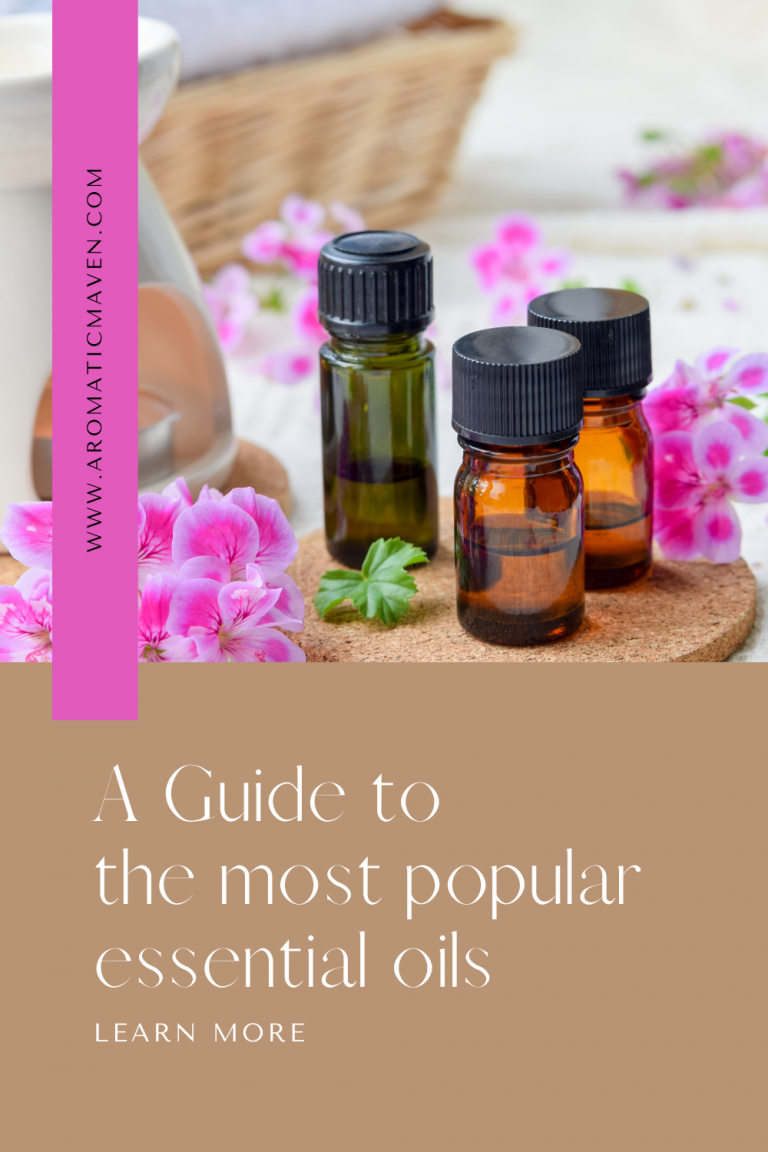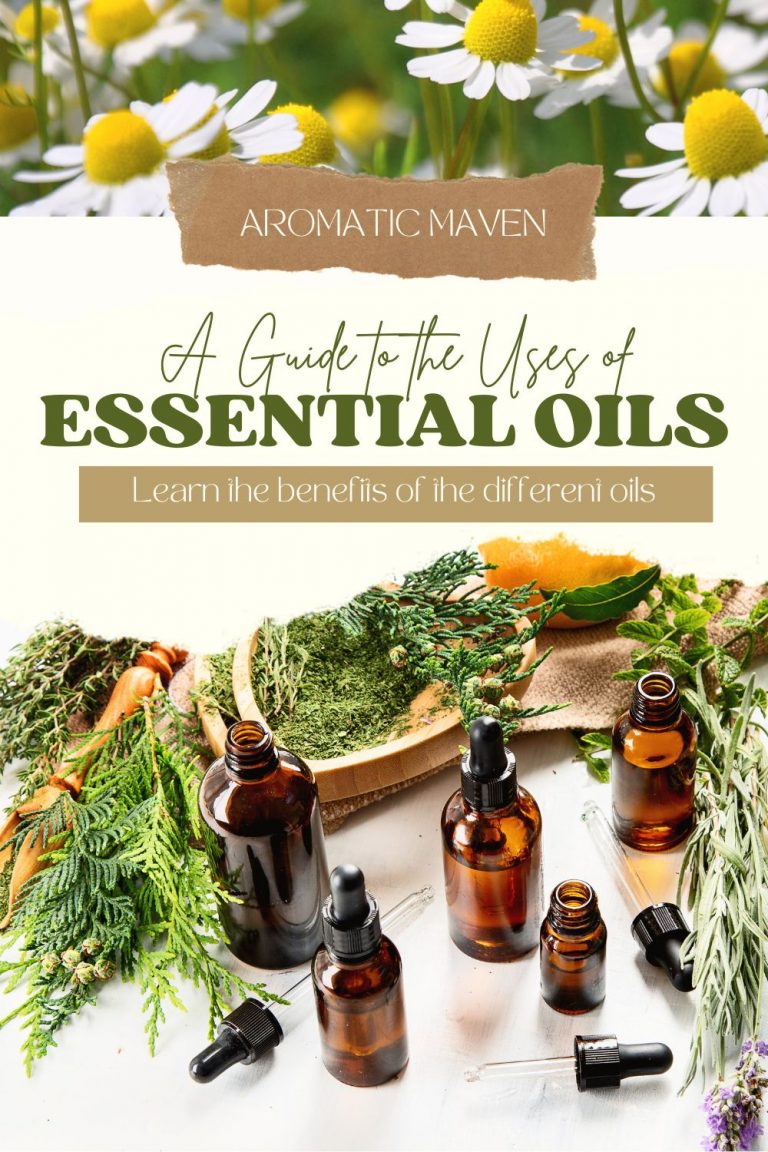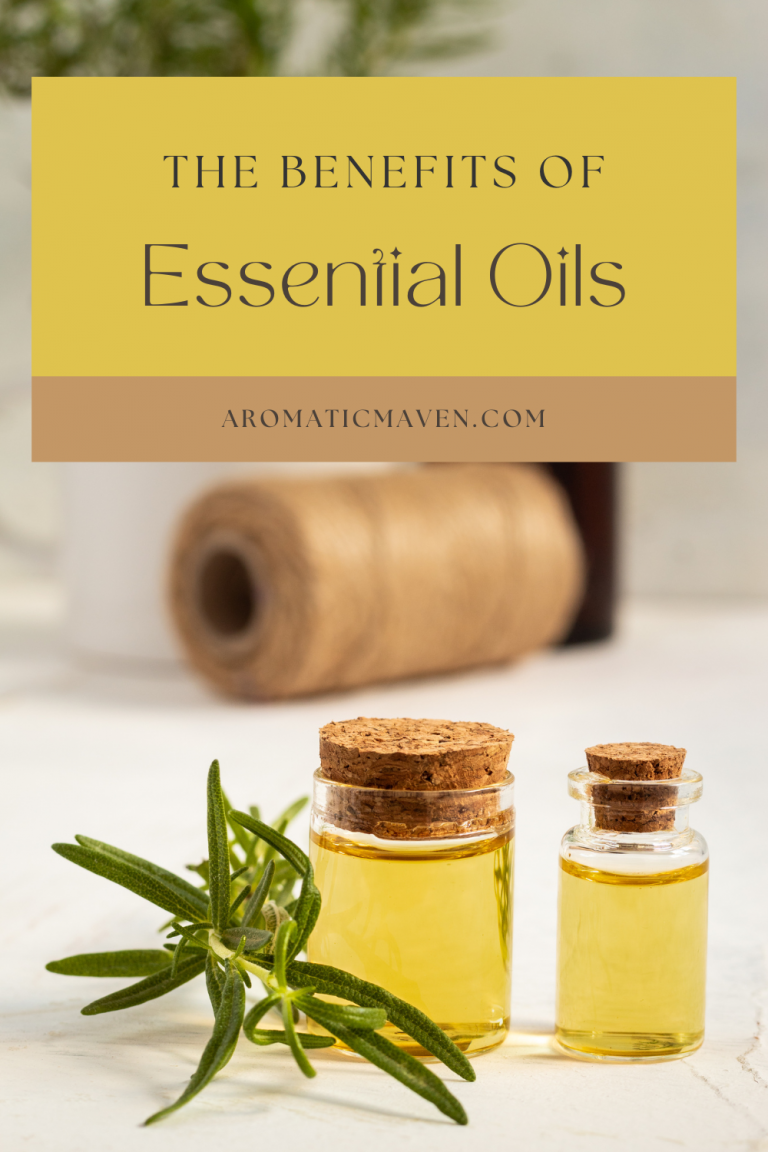All About Essential Oil Safety
Essential oils are commonly used these days for a number of different things. Of course, we share all about them here, so I thought I’d focus a bit on the topic of essential oil safety.
Essential oils are used therapeutically in aromatherapy to treat a number of health problems. They are also used in numerous things like cleaning products, bath an body products, and so much more. Check out this Essential Oils Uses Guide for more information about some of the uses and benefits.
Essential oils can be used safely but there are a number of factors to remember; these include contraindications, the ingredients of an essential oil, storage, dilution, toxicity and possible sensitization issues. Consult a qualified professional if unsure about the safety of using a particular essential oil.
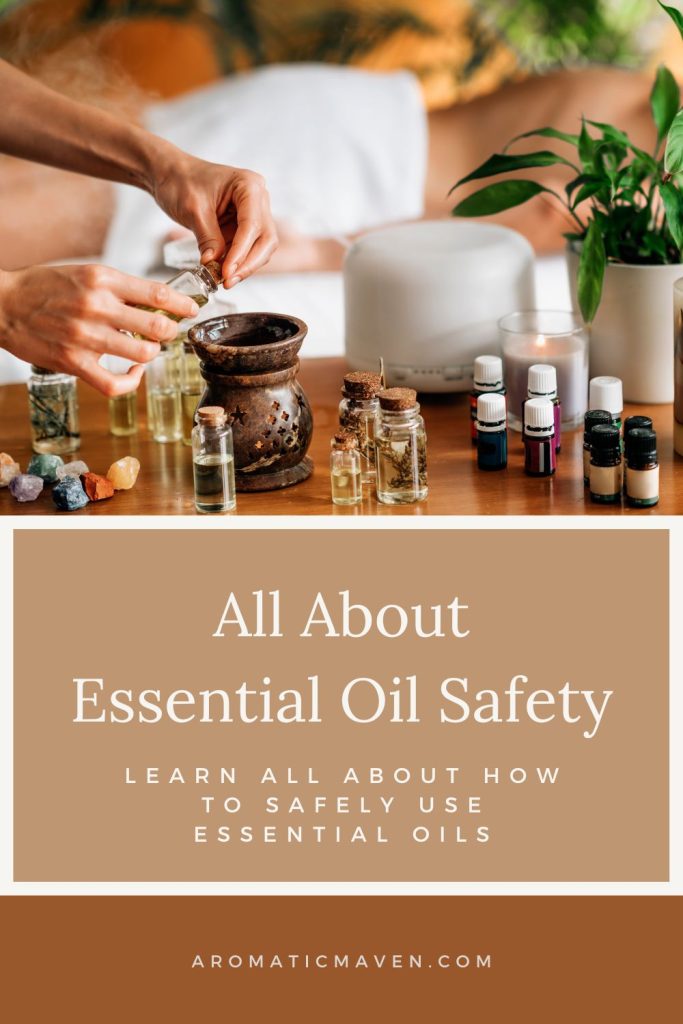
Are essential oils safe to use on the skin?
Yes, many essential oils can be safely applied to the skin when properly diluted in a carrier oil. However, some oils may cause skin irritation or sensitization, so it’s essential to do a patch test before widespread use.
How should I store essential oils?
To preserve the quality and potency of essential oils, store them in a cool, dark place, away from direct sunlight and heat. Keep the bottles tightly closed and out of reach of children and pets.
What precautions should I take when using essential oils?
Here are some general precautions to keep in mind when using essential oils:
- Always dilute essential oils before applying them to the skin.
- Perform a patch test on a small area of skin to check for any adverse reactions or allergies.
- Keep essential oils out of reach of children and pets.
- Avoid contact with eyes, ears, or sensitive areas.
- Store essential oils in a cool, dark place to maintain their potency.
- Follow proper guidelines for each essential oil and seek professional advice if needed.
Remember, essential oils are potent and should be used with care. If you’re unsure about using essential oils, it’s best to consult with a qualified aromatherapist or healthcare professional for personalized advice.
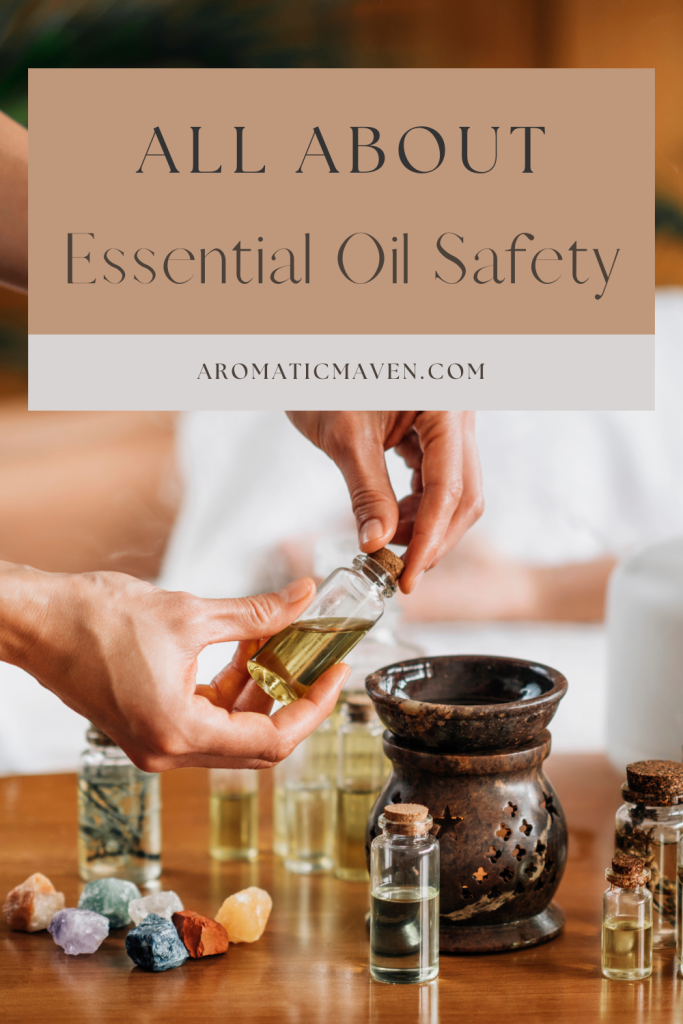
Essential Oil Safety Tips
Ingredients – Essential oils vary in their ingredients and some essential oils are more potent than others. Some essential oils, such as penny royal, wintergreen and wormwood, are not recommended for aromatherapy use, due to chemical ingredients which can cause irritation, toxicity, sensitization and, in large quantities, death. Julia Lawless, in her book “The Illustrated Encyclopedia of Essential Oils,” profiles over 160 essential oils with recommendations on the safety of each one.
Dilution – Never use essential oils undiluted on the skin, unless recommended to do so by a qualified professional, and then only with caution. Dilute essential oils in a carrier oil. Essential oils are not recommended for internal use. In addition, consult a qualified professional before using essential oils for babies, children and the elderly.
Contraindications – Although essential oils have to be used in large quantities to cause potential damage, it is wise to take note of any contraindications for a particular essential oil. Common contraindications for some essential oils include pregnancy, epilepsy and high blood pressure.
Toxicity – Kurt Schnaubelt, in his book “Advanced Aromatherapy: The Science of Essential Oil Therapy,” discusses the toxicity effects of some essential oils. Essential oils which contain a high concentration of the chemical ingredient ketone are more likely to cause neurotoxicity. In addition, essential oils with a high content of phenol may cause liver toxicity, if taken over a long period of time. Caution is recommended when using essential oils which may cause toxicity.
Sensitization – Some essential oils may cause skin sensitization or irritation because they contain certain ingredients, such as menthol in peppermint essential oil, which are more reactive. In addition, many of the citrus essential oils contain furocoumarins or coumarins, which cause photo sensitivity in ultraviolet light.
Take extra care when using skin sensitization or irritant oils, and also in sunlight after using photosensitive essential oils.
Storage – Make sure essential oils are labeled and stored correctly. Essential oils are flammable and need to be stored in a cool, dark place to maintain their therapeutic properties. In addition, store essential oils out of the reach of children and pets. Stored and used correctly, for the right purpose, essential oils are relatively safe to use.
Here is a relatively inexpensive portable storage case for essential oils. It holds up to 70 bottles, and has labels for the bottles.
In conclusion, essential oils can be a valuable addition to our wellness routines when used safely and responsibly. These natural extracts offer a wide range of therapeutic benefits, from relaxation to immune support and beyond. However, it is crucial to exercise caution and adhere to essential oil safety tips to prevent adverse reactions and ensure a positive experience.

